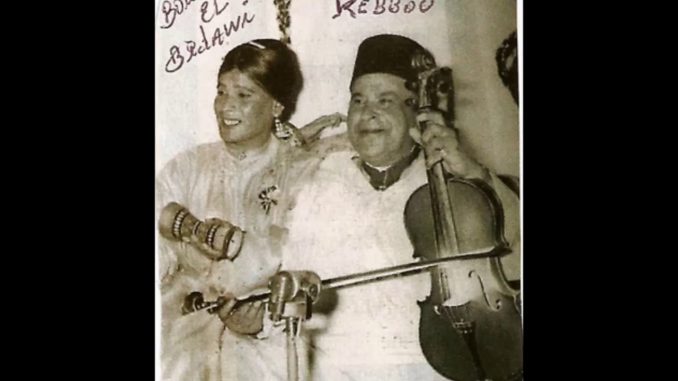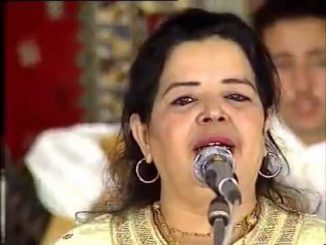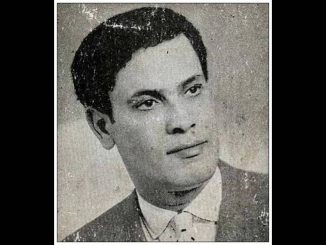
His real name is Mohamed Al-Harizi, but he is better known as “Marechal Kibbou”. This nickname was given to him by his friends and admirers because of the high technical skills he displayed when he played the violin. However, others say that it was HM King Mohammed V who gave him this nickname. As for the term “kibbou”, it is said to be associated with the fact that this astonishing artist used to hide his face in the hood of his Djellaba, when he performed wedding ceremonies for women.
Kibbou was born in the Boussemara district in the medina of Casablanca. At that time, the medina was home to the activists of the national movement that fought against colonialism, as well as a large number of artists such as Bouchaib El-Bidaoui, with whom Kibbou shared his love of the Aita. It was the “Marechal” who supported Bouchaib El-Bidaoui and encouraged him to create a group of Chikhates, of which he became a member and in which he shone.
Marechal Kibbou became the most sought-after Sheikh for wedding ceremonies and other festive occasions. The general public discovered him during his numerous radio broadcasts as well as through his comic plays in the company of Bouchaib El Bidaoui under the management of Bachir Laalej.
Marechal Kibbou became famous thanks to many songs that have been engraved in the memory of several generations of Moroccans and which continue to be sung by famous artists. “Khutna ya l’Islam” is one of those songs that caused him a lot of trouble with the colonizer who did not hesitate to confiscate his works and ban them because they were glorifying the resistance. It is for this reason that he was imprisoned. He the was released when Morocco gained its independence.



Be the first to comment